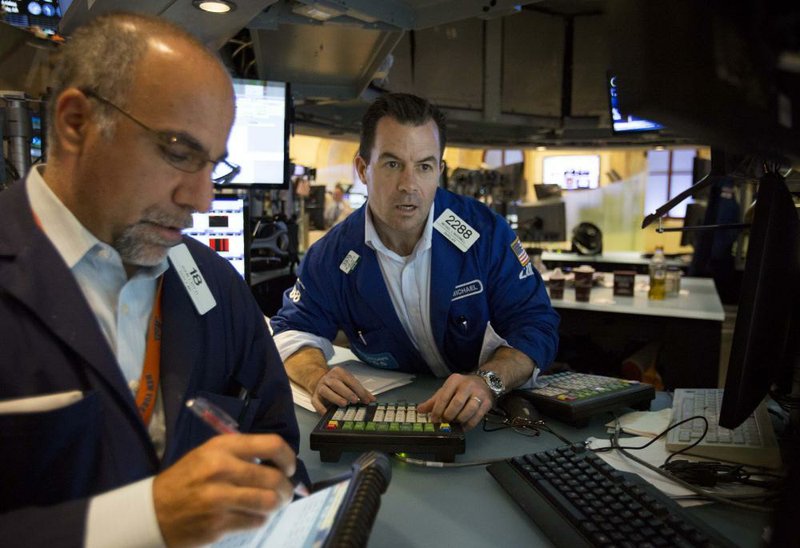NEW YORK - A bad day for technology stocks Friday held back the stock market’s big run-up.
Microsoft led the slump in the tech sector, falling the most in more than four years after the company wrote off nearly $1 billion on its new tablet computer and reported declining revenue for its Windows operating system. Google dropped after its revenue fell below analysts’ forecasts, partly because the Internet search leader’s ad prices took an unexpected turn lower.
With tech stocks falling, the Standard & Poor’s 500 index was held to a gain of 2.72 points, or 0.2 percent. That pushed the index up to another all-time high of 1,692.09. The S&P 500 has rebounded from a poor performance last month and is up 5.3 percent in July.
The Dow Jones industrial average fell 4.80 points, or 0.03 percent, to 15,543.74. If not for the declines in Microsoft, Hewlett-Packard and IBM, the index would have gained about 70 points.
The technology-heavy Nasdaq composite fell 23.66 points, or 0.7 percent, to 3,587.61. The index was the only major market benchmark to end the week lower, falling 0.4 percent.
Despite the market’s broad advance this month, a growing list of poor tech results is raising concerns about the strength of the economy and the stock market. Intel and eBay also reported weak results this week, and chip maker Advanced Micro reported a second-quarter loss because of a worldwide slump in PC demand.
Technology “has definitely been a sector that people have been expecting big things from and it has not delivered,” said Randy Frederick, managing director of active trading and derivatives at the Schwab Center for Financial Research.
A brighter outlook on the U.S. economy from industry bellwether General Electric was also overshadowed by the slump in tech.
Technology stocks in the S&P 500 have lagged the S&P 500 this year, gaining only 8.5 percent, versus 18.6 percent for the broader index. The industry is one of four of the 10 sectors in the S&P 500 that are expected to see earnings growth contract in the second quarter.
So far, 104 companies from the S&P 500 have reported earnings. Two-thirds of them have beaten analysts’ expectations, according to S&P Capital IQ data. Just under half have exceeded analysts’ forecast for revenue.
Microsoft dropped $4.04, or 11.4 percent, to $31.40 after reporting its earnings late Thursday. That’s the biggest one-day decline since the stock slumped 11.7 percent in January 2009. Google fell $14.08, or 1.5 percent, $896.60. It also posted earnings late Thursday.
The stock market rose sharply this month after the Federal Reserve reassured investors that it won’t pull back on its economic stimulus before the economy is strong enough. The U.S. central bank is buying $85 billion in bonds every month to keep long-term interest rates low and to encourage borrowing and hiring.
In government bond trading, the yield on the 10-year Treasury note fell to 2.48 percent from 2.53 percent late Thursday.
The price of crude oil edged up a penny to $108.05 a barrel. The price of gold climbed $8.70 to $1,292.90 an ounce.
Business, Pages 28 on 07/20/2013

